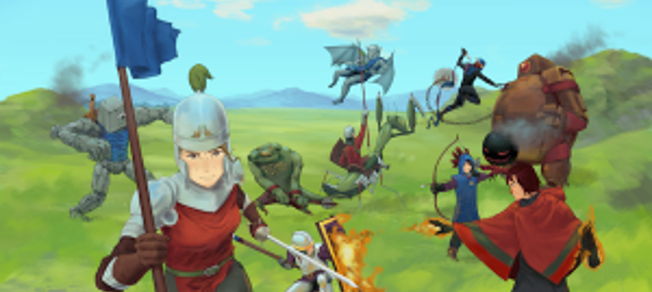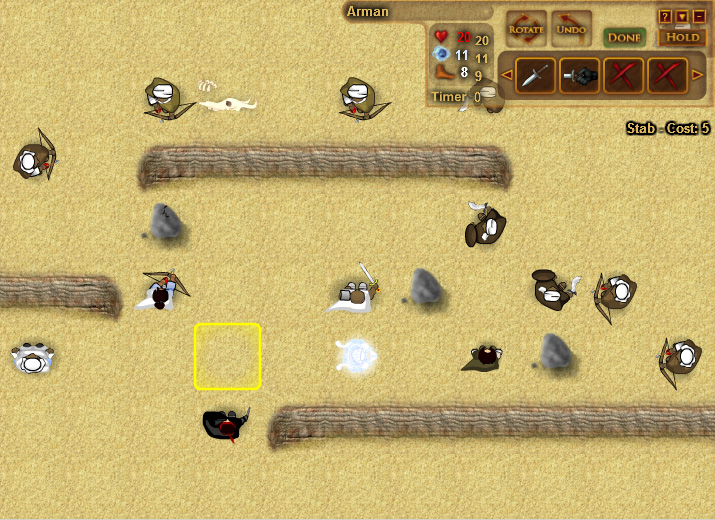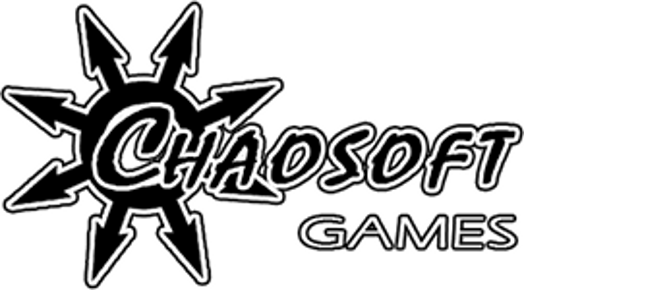Independent development teams come in all sizes. In our latest interview we talk with Craig Stern, founder of Sinister Design. With the exception of some contracted work, by and large he runs the whole show by himself and we discussed the experiences involved with developing under those constraints. We also talked about his Telepath roleplaying game series which has an ambitious new entry debuting in February. There’s a lot to learn here for talented individuals looking to break into indie development. It’s also a fascinating look at the culmination of a 4-year project.
Brandon: Can you tell me a little about the history of Sinister Design? I’d also ask you to tell me what roles you fill within the studio but it seems you handle them all. Is that true?
Craig: I began Sinister Design back in 2006, shortly after the release of my first Flash game on Newgrounds. I was starting law school at the time, and I’d made that one game as sort of a summer side-project. I expected to release it and then put the whole thing aside until after graduation. The only problem is, I loved designing the game so much that I wanted to keep doing it. So I kept designing games throughout school. My girlfriend at the time teased me because I spent more time coding than I did actually studying the law! Sinister Design is about making whatever games I want to make, those generally being RPGs and turn-based strategy games. Sinister Design is indeed a bit of a one-man band, though I do tend to bring in outside visual artists to help out on whatever games I’m making. I hope to change that in the next couple of years, provided that I can get enough cash flow to maintain regular paid staff. That said, the one-man-and-some-contractors model is working out well enough for now.
Brandon: You have a new game coming out in February, Telepath RPG: Servants of God. This game is the latest in your Telepath RPG series for PC. Tell me, are these games tied together? Is it possible for a player to jump in on this latest game without being lost? On the flip side, are there benefits to players who’ve been with the series the whole way?
Craig: The answer to both of those questions is “Yes.” Telepath RPG: Servants of God has a storyline all its own that doesn’t continue directly from any of the previous games, so new players will be able to jump right in without a problem. People who’ve played the earlier games will still get some benefits in terms of having a deeper knowledge of the world, its factions and its characters.
In truth, I actually try to discourage people from playing through the games in order; Telepath RPG Chapter 1 is an absolute embarrassment, and a terrible first impression for someone new to the series. It’s the first game I ever made in Flash, and it shows. Telepath RPG Chapter 2, by contrast, is a decent little game. If you absolutely must play a predecessor to Telepath RPG: Servants of God, play Telepath RPG Chapter 2. I’d still recommend just diving right in to Telepath RPG: Servants of God, though.
Brandon: Although the game’s not set to come out until February, you have made a demo available online. Not being that familiar with the series I jumped right in and have been very pleased with what I’ve seen so far. I happen to be a big fan of turn-based RPG’s that use a grid map. Are there any other games you feel have influenced your work, not just for that design element but for anything? In other words are there any games you feel yours compares favorably to?
Craig: My biggest inspirations for the combat system were the old Shining Force games (by which I mean Shining Force 1-3, not the heinous action RPG reboot they tried). As for the open world, dialog trees, quests with multiple endings, and characters who remember what you’ve said and done, Fallout 1-2 were probably the biggest influence on me. (I haven’t gotten around to the third installment yet.)
As for games that Telepath RPG: Servants of God compares favorably to, let’s put it this way: if you like being able to actually role play, you’ll find that it compares favorably to most indie RPGs out there right now. If you prefer turn-based combat to real-time, you’re probably going to find that it compares favorably to pretty much any AAA RPG released on PC in the past ten years.
Brandon: There’s a lot of competition out in the RPG market from both small indie teams and larger development houses. How has the process been developing this game pretty much all on your own? Are there ever times you wish you were working in a more team-oriented structure? Or did you feel like you had a strong enough vision to see this through by yourself?
Craig: Telepath RPG: Servants of God is a very complex game, so I won’t claim that developing it solo has been easy: it hasn’t. There were many times that I wished I had a team at my disposal so I could delegate certain tasks. The inherent limitations of being one person who can only work on one thing at a time have caused development to take far longer than it would have taken with a team. However, with that said, the game is just about complete. It would seem that I did indeed have a strong enough vision to see it through by myself, even if it did take upwards of four years to do it.
Brandon: Have you considered where you’ll go from here in terms of your next project? Would a smaller game with a shorter development cycle be more ideal, or do you think you’ll stick to making games that border on epic in terms of scope?
Craig: The next project is going to be smaller in scope. I intend to follow up on Telepath RPG: Servants of God with a multiplayer turn-based tactics game; I’ve been working on the engine for it here and there for over a year already. It’s set in the same universe as Telepath RPG: Servants of God, but with an intricate and robust engine that allows for pitched battles among up to six players at a time, each controlling up to 24 units from among two dozen unique classes, across huge battlefields with destructible terrain and elevation effects.
Once I have that one out of my system, I expect I’ll be returning to single player projects with an epic scope.
Brandon: Well this project is obviously the culmination of a lot of hard work over a long period of time and I have to imagine it’s been quite the learning experience. What advice can you give to rookie developers looking to break into the indie development scene?
Craig: Start by making a game you can easily finish, and do an excellent, excellent job on making that game be the best that it can possibly be.
That’s half of it, and you can read advice about doing that just about anywhere. The other half of it is social, and people don’t tend to talk about this part as much. The indie scene isn’t really something you “break into”; it’s something you ease into, like the shallow end of a lukewarm pool. A lot of new developers make the mistake of showing up on a place like TIGSource with their games, thinking they can self-promote and immediately receive recognition for their work. That is a huge mistake! Spamming forums is just about the worst strategy you can possibly use.
The indie scene is just like any other scene: you need to socialize with people and make friends before anyone will care about what you’ve been doing. Approach it as a community rather than as a place to market. If possible, attend game jams, panel discussions and other events so you can meet people face-to-face. Drink beers together; talk shop; inquire with about what other people are doing. You’ll build relationships, and those tend to pay huge dividends over the long haul.
Remember: these are the people who are going to retweet your game announcements. These are the people who are going to share sales data and press contacts with you. Don’t start off by trying to promote yourself to them; just make friends. That is my best advice.
Brandon: Good rules that I think apply to everyone trying to break into internet marketing. I know our site has faced those same situations as we try to grow. Well before we finish, is there anything else you’d like to tell our readers that might be interested in playing your game?
Craig: Yes: Telepath RPG: Servants of God is like an inverted funnel. If you’re a veteran gamer playing it for the first time, have a little patience. The linear introductory sequence takes about 15 minutes and eases you into the game both story-wise and mechanics-wise. After you fight the first boss, the thing opens up, and just keeps on opening up the further you go. After a certain point, it blows fully open and becomes a completely nonlinear quest that you can complete in a variety of different ways.
© 2012, The Indie Mine. All rights reserved.






